- P1992
| Campaign
Literature « 1992
Republican and Democratic Presidential Primaries
1992 Republican and Democratic Presidential Primaries
Although a truly historic development—the end of the Cold War—was continuing to unfold across the Atlantic as the 1992 campaign progressed, domestic issues, particularly the economy, dominated the election-year discussion. The literature from candidates of both parties well reflects Clinton chief strategist James Carville's famous saying, "It's the economy, stupid." Visitors to New Hampshire in the lead-up to the first-in-the-nation Feb. 18 primary saw much evidence of the weak economy; empty retail spaces dotted main streets in cities and towns across the state. Carville actually set out three points: "1. Change vs. more of the same; 2. The economy, stupid; and 3. Don't forget health care."
President George Bush filed to form his re-election campaign committee on Oct. 11, 1991. He was challenged by columnist and pundit Pat Buchanan, who announced his candidacy on Dec. 10, 1991, as well as former KKK grand wizard and former Louisiana state representative David Duke, who announced his candidacy on Dec. 4, 1991. On the Democratic side the major candidates were former Sen. Paul Tsongas (MA) (Apr. 30), Gov. Doug Wilder (VA) (Sept. 13), Sen. Tom Harkin (IA) (Sept. 15), Sen. Bob Kerrey (NE) (Sept. 30), Gov. Bill Clinton (AR) (Oct. 3), and former Gov. Jerry Brown (CA) (Oct. 21). Gov. Mario Cuomo (NY) loomed over the field as a possible candidate before ruling out a campaign on Dec. 20. Because the first-in-the-nation New Hampshire primary offers candidates the hope of a break-out result and has a simple filing process to get on the ballot, numerous other lesser known and lightly funded hopefuls competed in the Feb. 18 contest.
Ross Perot's Feb. 20, 1992 appearance on "Larry King Live" inspired a grassroots petition movement. Although this was not a primary campaign but an effort to get Perot on general election ballots, it did occur during the primary period. Activity was particularly intense from April until Perot's shock July 16 announcement that he would not be a candidate. An assortment of newsletters and flyers produced by state petition committees illustrate these grassroots efforts.
REPUBLICANS
Bush-Quayle '92 Primary Committee, Inc.
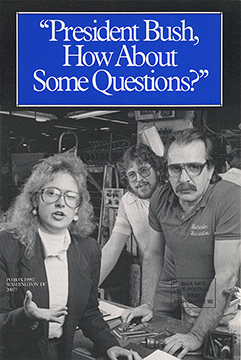 |
|
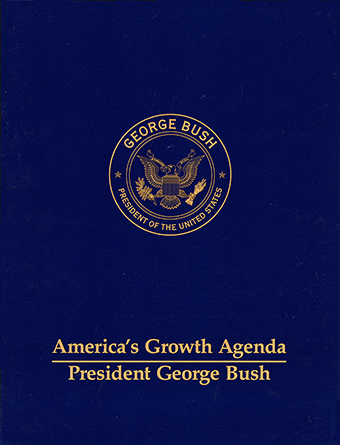 |
|
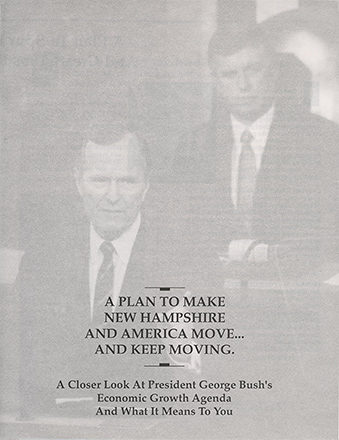 |
| . |
|
Buchanan for President
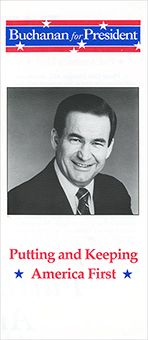 |
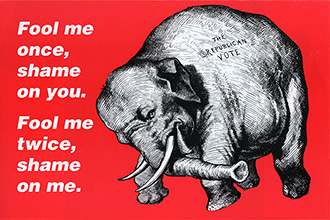 |
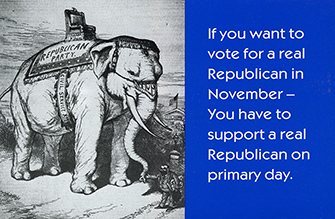 |
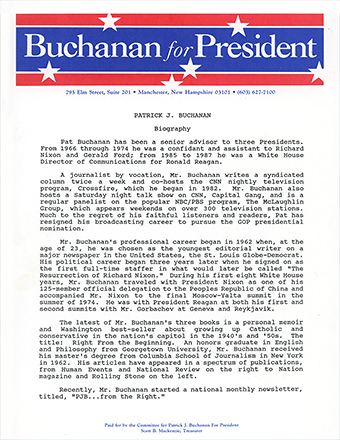 |
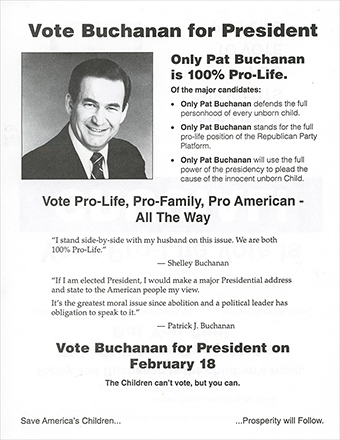 |
see also fundraising letters
DEMOCRATS
Brown for President
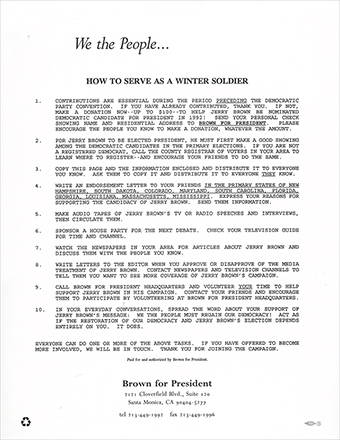 |
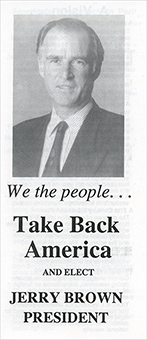 |
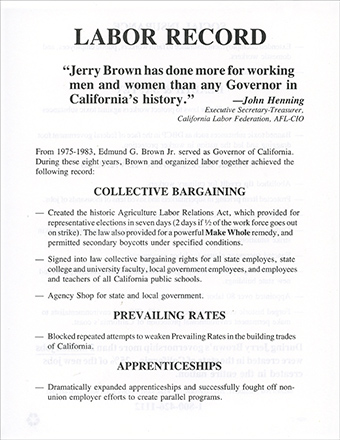 |
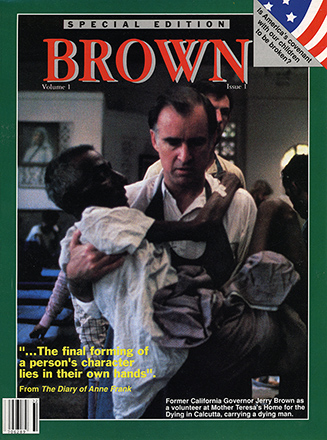 |
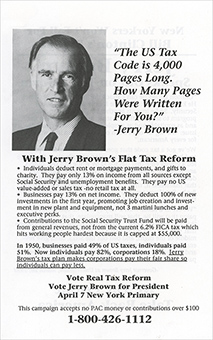 |
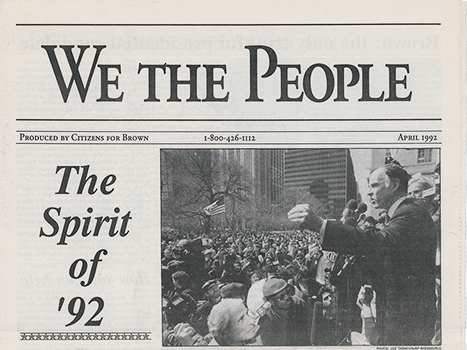 |
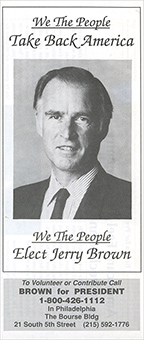 |
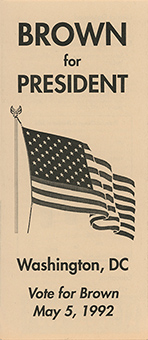 |
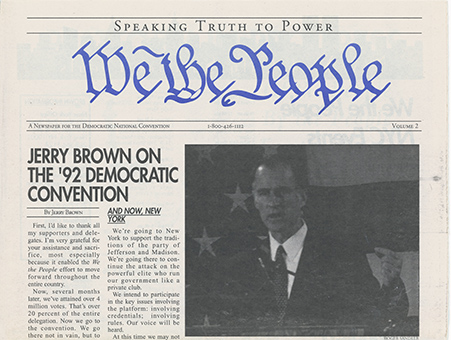 |
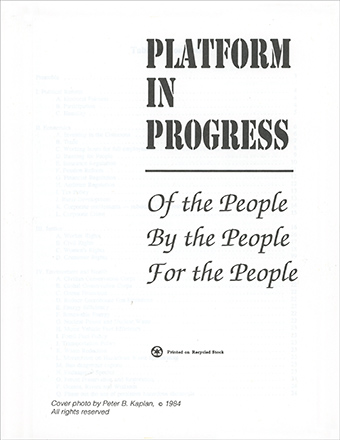 |
|||||||
Clinton for President Committee
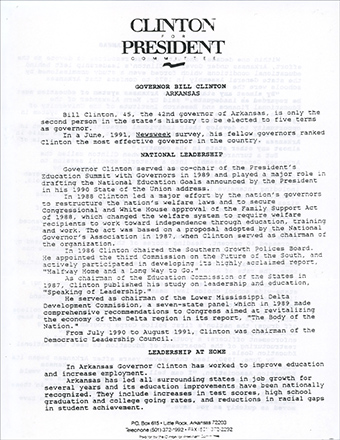 |
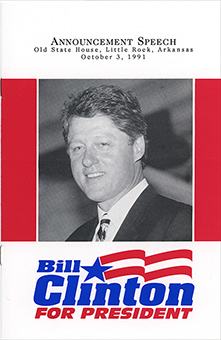 |
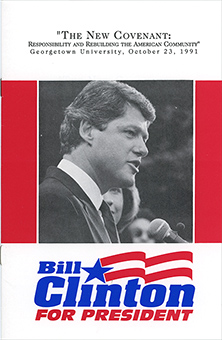 |
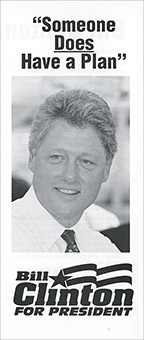 |
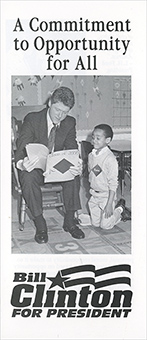 |
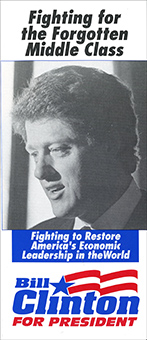 |
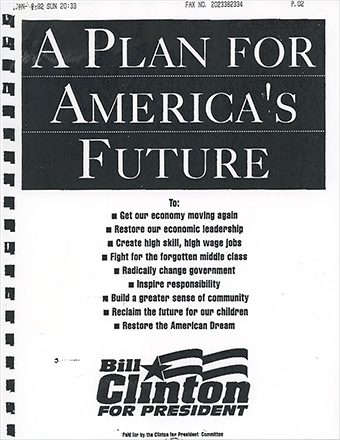 |
|
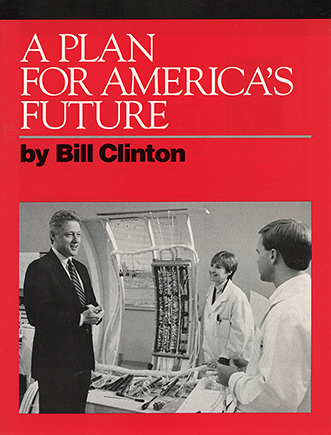 |
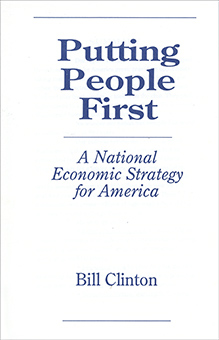 |
|
||
|
|
Americans for Harkin
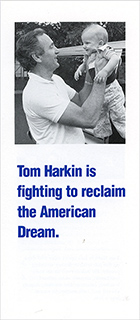 |
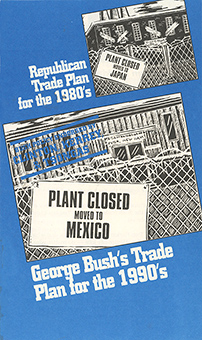 |
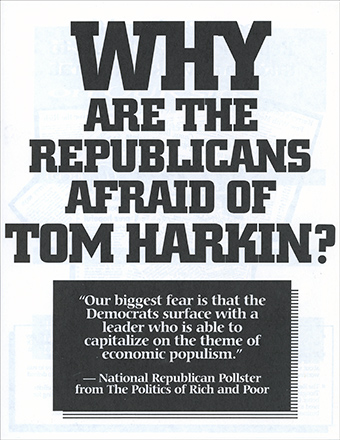 |
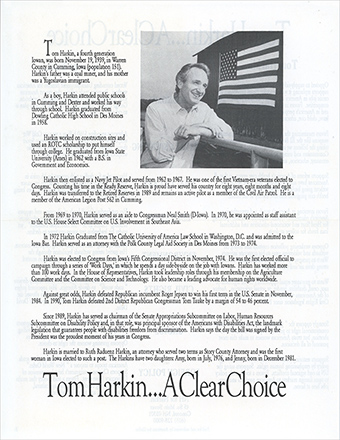 |
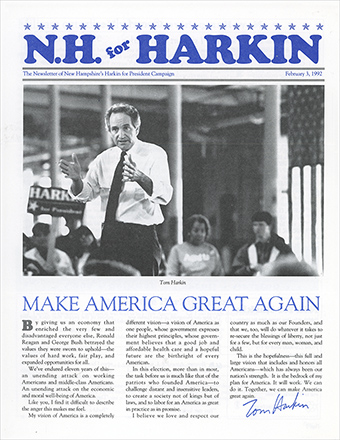 |
|
|
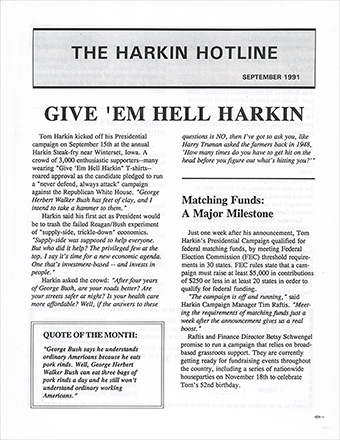 |
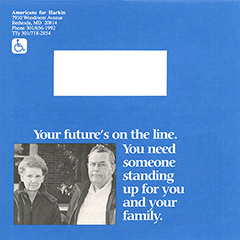 |
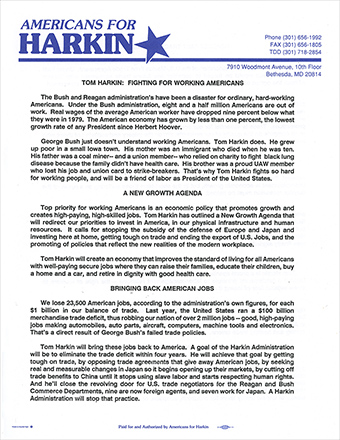 |
|
+ |
||||
|
|
Kerrey for President
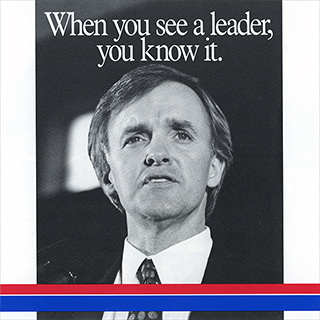 |
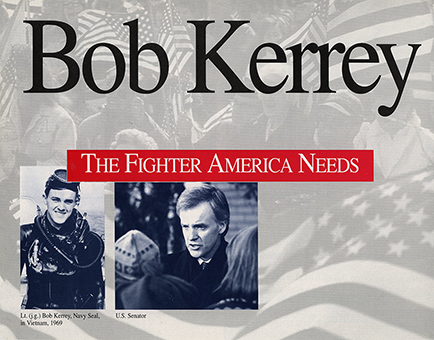 |
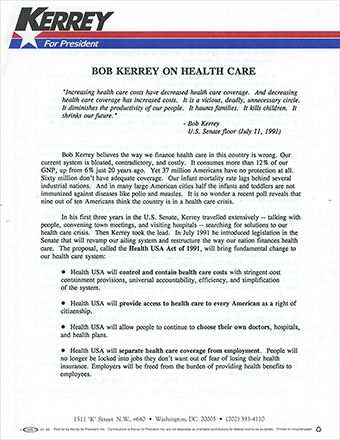 |
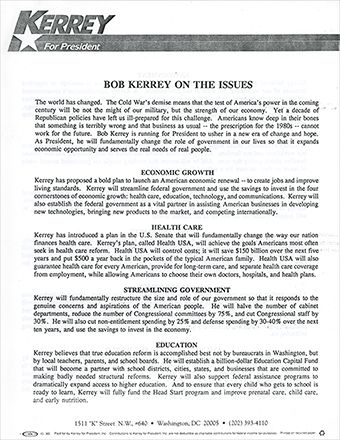 |
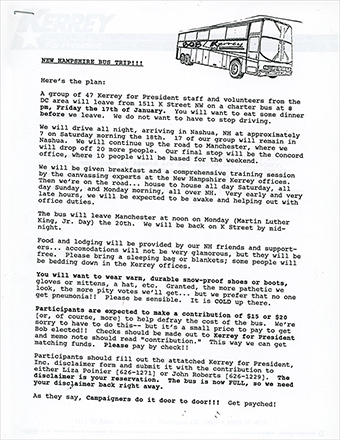 |
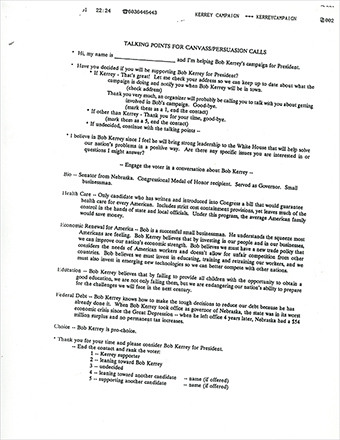 |
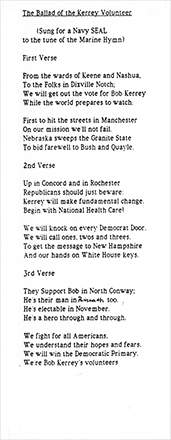 |
||
|
|
The Tsongas Committee
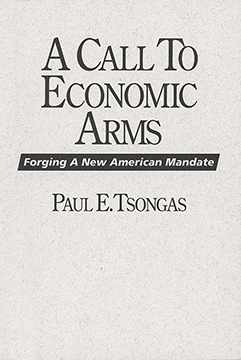 |
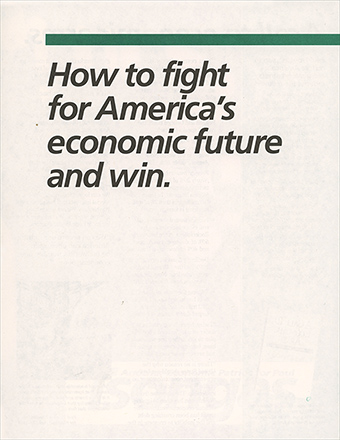 |
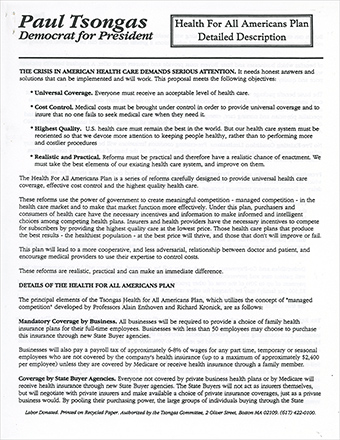 |
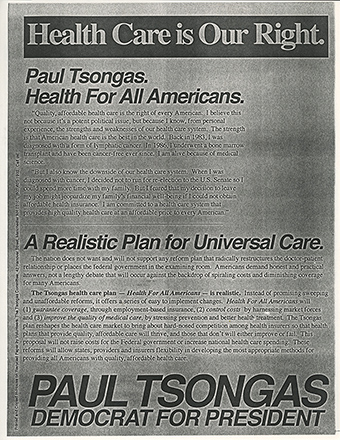 |
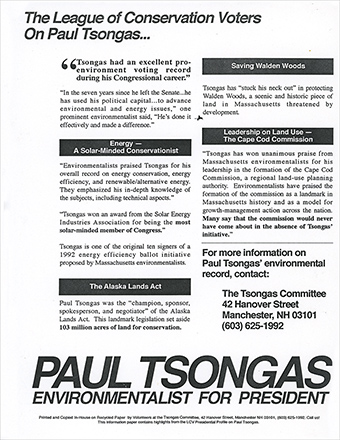 |
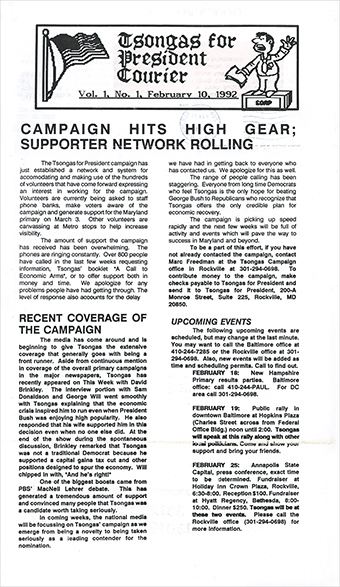
Wilder for President Committee
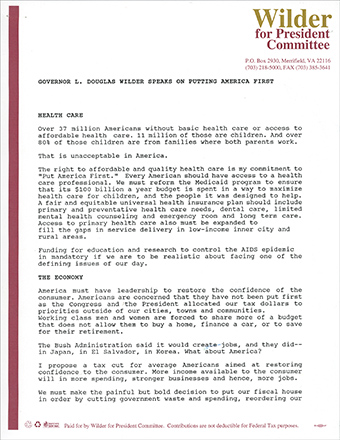 |
|
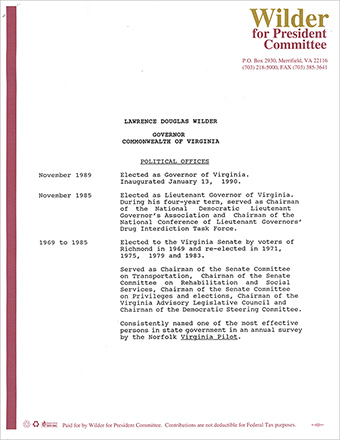 |
MORE
Notes:
The field takes shape*: candidate announcement speeches, plus one non-candidate.
| Jan. 1991 |
Feb. |
Mar. |
Apr. |
May |
Jun. |
Jul. |
Aug. |
Sept. |
Oct. |
Nov.
|
Dec.
|
| 30-Tsongas |
22-Agran |
13-Wilder 15-Harkin 30-Kerrey |
3-Clinton 21-Brown |
|
10-Buchanan 20- |
The field thins: candidates exit.
| Jan. 1992 |
Feb. |
Mar. |
| 9-Wilder |
5-Kerrey 9-Harkin 19-Tsongas |
The Committee for the Study of the American Electorate reported, "Only 33,637,075 of 171,003,000 eligible Americans voted in the Presidential primaries, a 19.6 percent turnout and the lowest since primaries began proliferating in 1972." Although there was record turnout in the New Hampshire primary, "eleven states recorded new lows." CSAE reported that for comparable primaries, Democratic turnout dropped 16.6 percent between 1988 and 1992, while Republican turnout was down just 0.7%. The Democratic race largely resolved in March, but a protest vote kept Republican turnout from falling.
See also:
David S. Broder. "New Hampshire recession is bad news for Bush." Tampa Bay Times, July 24, 1991.
Elizabeth Kolbert. "Campaigns New Prop: A Prescription in Print." The New York Times, Jan. 25, 1992.
ADVERTISEMENT

